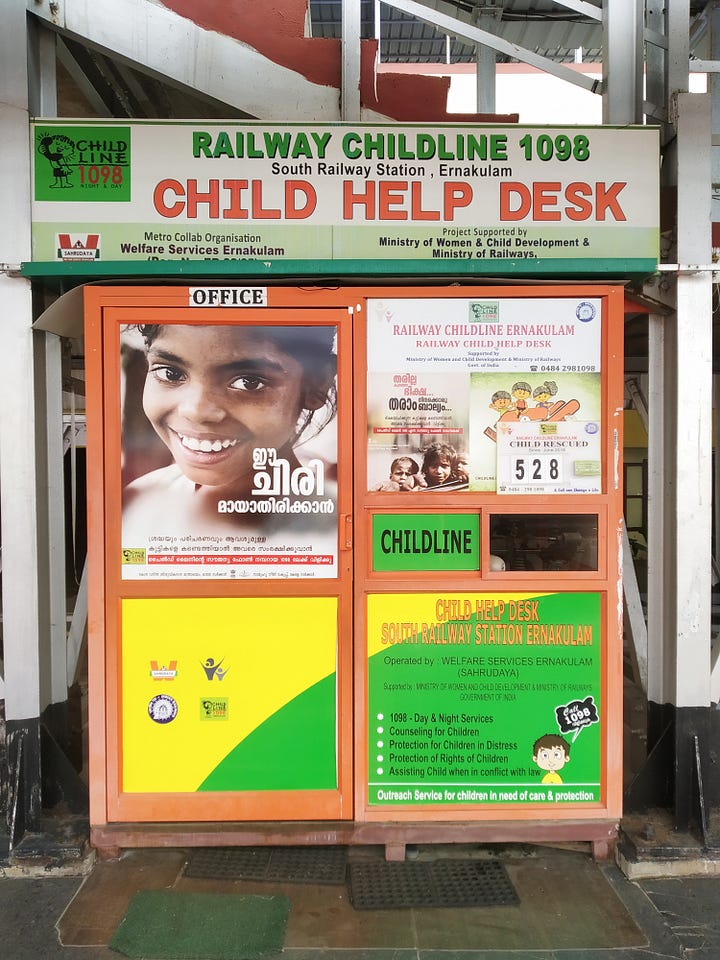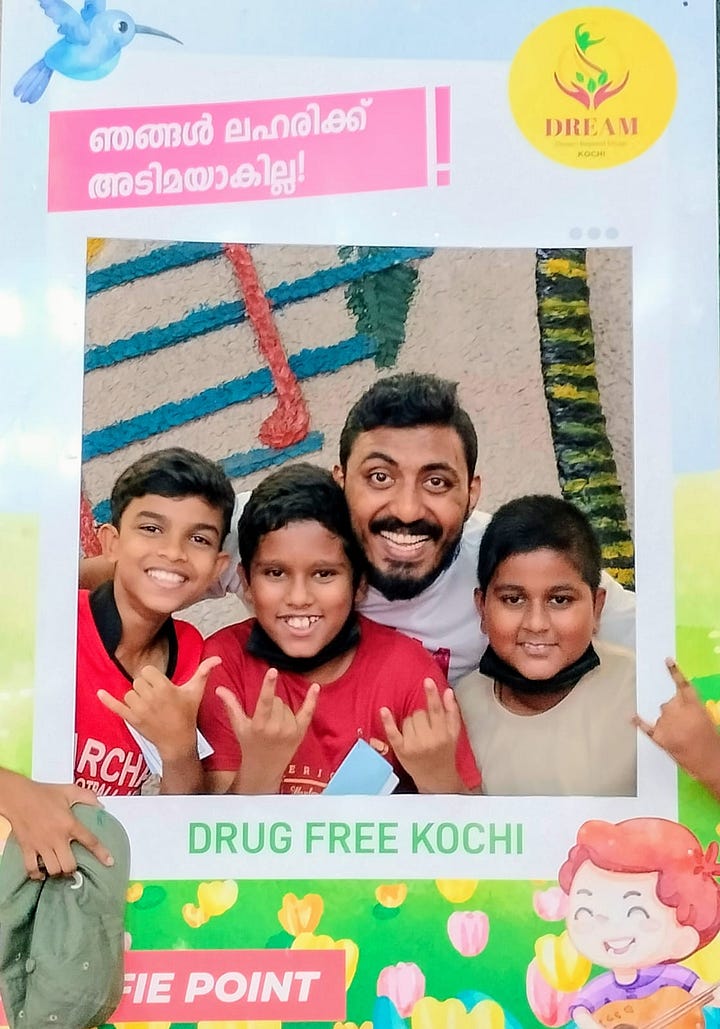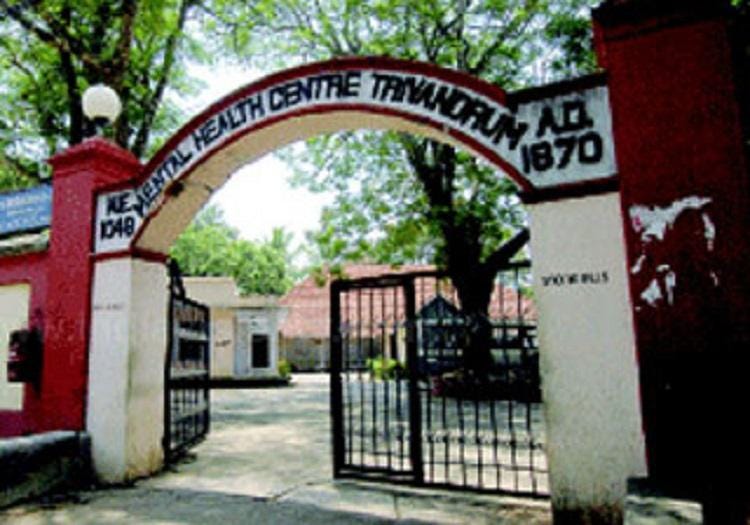India's Rising Drug Epidemic and the Role of Social Workers
Exploring the valiant efforts of those fighting this evil on the frontlines
If you missed Part 1 of this series where I set the context of this current and growing social issue, please read it here.

Shibin Shaji Varghese holds a master's degree in social work (MSW) and in his first year of college he received an internship placement in the Railway Childline wing at Ernakulam where he would get field-trained on addiction counseling for children in distress.
The Railway Childline Help Desk (RCHD) is a 24-hour kiosk service at the A-grade railway stations of Kerala, including Trivandrum, Ernakulam Junction, Thrissur, and Kozhikode, established in 2018 in partnership with the Ministry of Railways and Ministry of Women and Child Development. Their objective is to provide immediate and emergency support to runaway, lost, abandoned, or trafficked children, who are found taking refuge in the trains or transiting through Kerala's railway nodes. According to Sahrudaya, a charitable and non-profile organization registered in Ernakulam, the RCHD has the following 4 focus areas:
Rescue children found wandering alone in trains or at stations
Protecting and caring for the unaccompanied children found in railway stations
Provide legal aid to children arriving by train as potential victims of child labor
Assist in finding missing children


Shibin was 21 years old at the time. Little did he know that a kid from North India was about to change his perspective of the world and his purpose in life.
The First Case
In 2015, an NDTV investigation exposed a major child trafficking racket in Gaya, the 2nd largest city in the state of Bihar. The city known for its temples, and heritage, a place of pilgrimage, was termed India's Heart of Darkness. It was assumed that about 4000 children (including minors) were being trafficked every month from Gaya, through bus and railway networks. At least one child in every household was sold to major cities across India for child labor, and the middlemen were usually the child's relatives. A farmer in Gaya sent his 6-year-old son away with a relative for Rs.300/month and never heard back from the child again. It may be symbolic of this reality that the word “Gaya” in English translates to "Gone".
In 2018, Shibin starts his day as a volunteer for Childline eager to clock his first 8-hour shift at the Ernakulam railway station. During that day he becomes instrumental in assisting Childline to take into custody a Bihari kid whose day job was to pick up plastic bottles discarded by passengers in the train compartments and on the tracks, which he would later sell at a local scrap shop for Rs.10/kg. He had arrived in Kerala several years ago and has been skillfully evading the railway police, operating unnoticed, while being pitifully ignored by commuters. That day Shibin and the Childline staff intervened.
The Bihari kid, only 15 years old at the time, was unusually strong for his age and put up a fight. Shibin recalls how they had to wrestle him with the help of the police before detaining him. He cursed at them and protested in a dialect that was a mix of Hindi and Bihari, a language foreign to Shibin and his Malayalee colleagues. In an act of retaliation, the kid even tried to inflict self-harm to persuade them to set him free. His captors were equally relentless and with the support and guidance of the state-appointed Child Welfare Committee (CWC) team, they succeeded in admitting the kid to a shelter home.
This was Shibin's inaugural day as an intern volunteering for Childline and he had worked 48hrs straight on what became his first case of thousands that would follow.
Shibin continued to be involved with the case as social workers and doctors evaluated the Bihari kid for substance abuse. They found that he was addicted to Pan Parag, an Indian chewing tobacco product that had decayed the molars of his teeth through continuous usage, and Beedi, a hand-rolled thin cigarette made of uncured tobacco wrapped in tendu leaves, that he used to curb his hunger with. He was diagnosed as mentally unstable and the CWC recommended that he undergo treatment. He was later transferred to a boy's home in Kottayam where he continued fighting the system that was trying to help him. At one point he was accused of sexually assaulting other kids which got him transferred to the Govt. Mental Health Center at Oolampara Trivandrum for further treatment and care. That's where Shibin's purview ended for this Bihari kid.

In 2023, Shibin is visited by a young familiar face. As he reintroduced himself Shibin recognized the Bihar kid he had found 5 years ago sleeping on the railway platform. His eyes were not the red budging ones he remembered, his lips seemed to have regained color, and his teeth had been restored. He said he was on his way back to his Gaav (village) and on his way to track down some old acquaintances who owed him money. He stopped by the Childline Railway Helpdesk to meet the person who had changed the course of his life.


